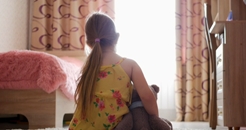 Whole people - healing communities
Whole people - healing communities
From a video on PBS
Trauma interrupts normal child development and exacts deep costs, to both the individual and the community. Here is a shortened story of one neighbourhood working to change its destiny:
Raising children into successful adults is every parent's goal. The more we learn about child development, the better we understand how crucial those first few years really are. Childhood trauma's often experienced at a personal level, and can happen to anyone regardless of race, class, gender, religion, or geography. We are only now beginning to understand the impact that adverse childhood experiences (ACEs) have on those who experienced them.
Adverse childhood experiences are damaging in multiple ways. There's the actual acute experience of trauma, such as abuse, neglect, losing a parent or family member or growing up around substance abuse. Then there's the body survival instincts that work to create normalcy in the midst of emergency. But children are ill-equipped to make sense of what's happened to them. The ACEs study has revealed staggering correlations between adverse childhood experiences and adult health and mortality. Childhood trauma has been linked to a wide range of conditions like heart disease, cancer, obesity, mental illness, substance abuse, and incarceration.
St. Cloud Minnesota is a small town turned metropolitan area. It's European immigrant roots have had to make room for new African roots as Somali refugees, and the African-Americans arrived in search of peace and opportunity. People settled where they could afford to live and chose to be near their friends and family. This cluster of lower income families had the unintended consequence of concentrating poverty, which had deleterious side-effects on the children.
The community experience of trauma affecting this St. Cloud neighbourhood required a whole community solution. There's some amazing stuff going on in the community. The Promise Neighbourhood is one of them. The primary focus of Promise Neighbourhood is to work with families and have families and community members identify issues, develop solutions, and then evaluate those solutions and make changes. The big thing is that community people are making decisions at this organisation. It is a voice for the community and has been able to help their children be successful in schools.
"I was one of those families that needed some of the support that they do here with the back to school, because I couldn't afford to get my kids the supplies. So I got a friend to bring me here, and my kids got to eat, got backpacks, everything in it. I've never seen anything like it in my life." A single mum and now staff member.
"I have a tattered background. So I was looking to make a difference, to help the kids out. So they wouldn't go down, you know the path, because I've been to prison. To be a positive role model for the kids in the neighbourhood." A volunteer.
"They might not be comfortable opening up at home. They might come here and just, come out their shade. And you might learn something about a child once they're able to just open up." A volunteer.
Many find comfort, safety and compassion in faith communities. Faith leaders are beginning to wrestle with how to be a part of the solution to adverse childhood experiences, by bringing the very best of their faith traditions.
A hospital chaplain observes, "The faith communities can be key to helping to continue to bring this forward and to find solutions, breaking into the cycle. The commandment, honour your father and mother doesn't include the addendum unless they happen to be beating the hell out of you. And it's those kinds of conflicts that actually we need to talk about more in the Church. That's another reason to bring up and continue to make the unspeakable, speakable. There's a sense of hurry up, get over it, move on, it's over. And so there's a lack of understanding that, that healing time takes time.
"A lot of people struggle in terms of shame, particularly in terms of what happened to them. There's a lot of messages in society that silence. There's a lot of messages in Church that silence. We don't talk about this in Church. We don't talk about this in families.
"Part of the work that I've been doing is to encourage faith leaders, my colleagues, to explore any of the implicit or explicit messages or teachings that may actually reinforce the silence, the shame and the generational cycle of trauma to take a good, honest look at that in light of the impact of trauma on the human person and to ask themselves, "Am I helping, or am I hurting? Am I helping to free people or am I reinforcing shame and silence?" And I think that's one of the most critical challenges for our faith communities right now, is to take a good, bold, fearless look at how we're doing Church."
Watch the 27 minute video:
Find video here.
Retweet about this article:
From a video on PBS, 06/01/2021